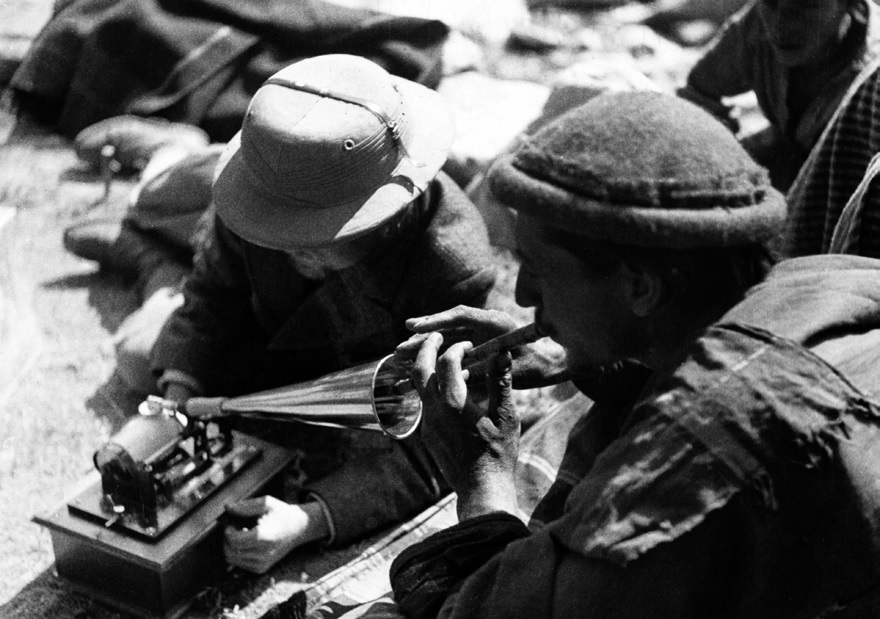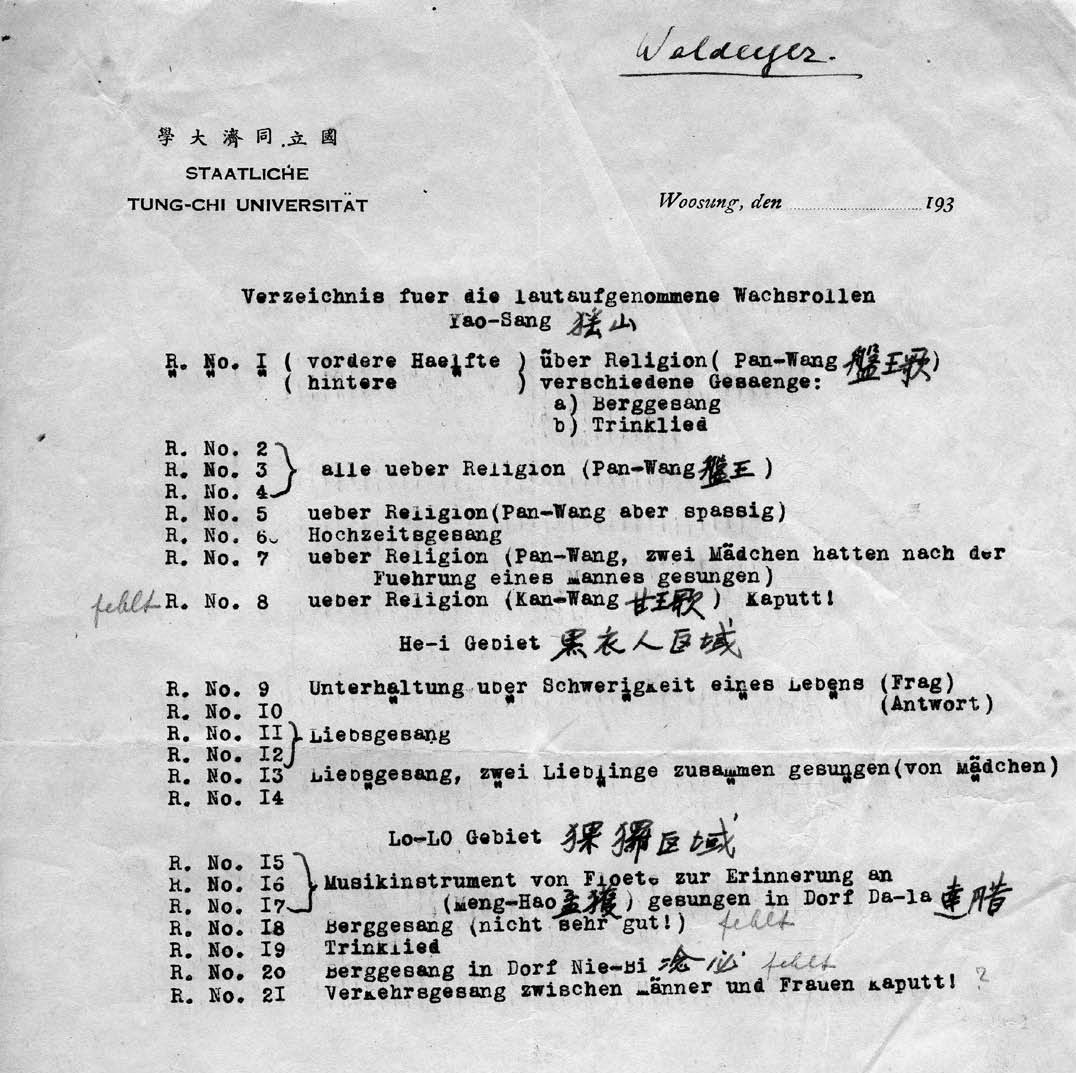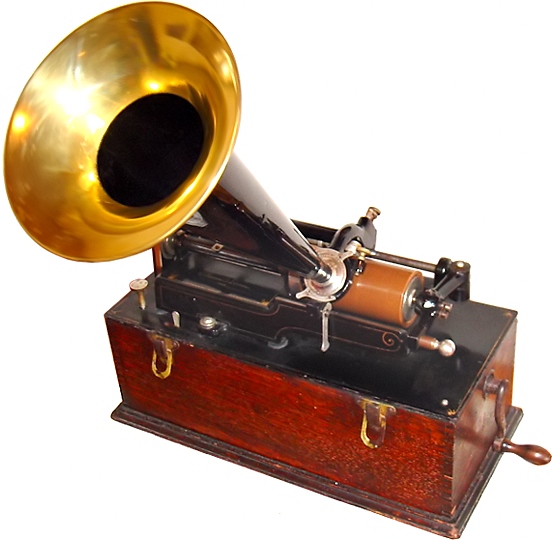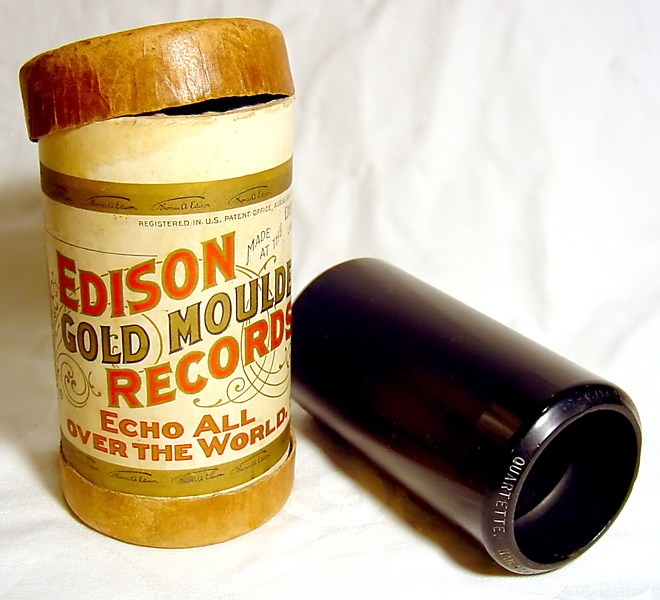“中国早期录音的‘反哺归家’/repatriation :历史与意义”国际音响档案工作坊将于2017年11月9日至11日在上海音乐学院举办。此次工作坊由上海音乐学院贺绿汀中国音乐高等研究院、上海音乐学院“中国仪式音乐研究中心”、上海高峰高原学科建设“中国生态音乐学团队”联合主办,由香港蓬瀛道教音乐研究基金协办。
工作坊将邀请到来自英国国家图书馆、德国柏林音响档案馆、澳大利亚国家档案馆、日本国家民族博物馆(大阪)以及中国“文化部民族民间文艺发展中心”、台湾师范大学“数位典藏中心”、上海音乐学院“中国仪式音乐研究中心·中国传统音乐数据库”等单位的专家学者,美国加州大学洛杉矶分校及前任美国史密森尼学会民俗录音室主任安东尼·西格等本领域资深学者。诸学者与音像档案工作者都将在工作坊中分享并讨论他/她们在该领域的工作经验。
本次工作坊致力于提醒人们关注文化多样、社会变迁、族群动态语境中的早期录音。这些录音往往有意无意地成为利用新变化和技术的产物,并多方面地挑战人们对文化成果的看法。
另一方面,多样的现代科技工具,包括地理的以及在多种多样的文化与人类学分析之中所获得的洞察力,也改变了这些录音在其发源地的原本意义。要认识这些各不相同的、文化上形形色色的意义,则需要对历史、环境、技术以及社会挑战具备更加细致的理解。
今天,早期录音的“返家”(repatriation)工作很容易便能通过世界网络以数据的方式执行和传播,其中物质层面的交流不仅是一种技术需求,更是一种无形知识要素转移的文化体现。其意义有助于人们在包容个体性与文化多样性的全球语境中,理解对社会进程的动态。
本次工作坊将围绕以下几个问题展开讨论:
1.早期中国录音对理解中国历史有多重要?
2.“返家”或者在数字化时代提供可获得的早期录音,其意义何在?
3.在类似情境中能获得哪些体验?在挑战中所学到的经验如何被应用在中国早期录音的语境中?
此外,作为本次工作坊的成果之一,一部来自于德国柏林音响档案馆、录制于中国20世纪初的西南少数民族录音,将会被作为范本返家、妥善保存,并经相关媒体面向全国出版。
工作坊将面向全国同行及公众开放。欢迎关注!
The workshop “Repatriation of Early Sound Recordings Made in China: History and Meaning” will be hold from 9-11 November, 2017 at Shanghai Conservatory of Music. We will invite the scholars and experts from British Library, Berlin Phonogramm-Archiv, National Archive of Australia (Sydney) , National Ethnographic Museum (Osaka) , UCLA , China Culture Ministry Ethnic Folk Arts and Development Center, Taiwan Normal University and Shanghai Conservatory of Music.
The workshop is to raise awareness of early sound recordings, their history in the context of diverse cultures, social changes, and ethnic dynamics. Early recordings, often being products of planned or accidental efforts in making use of a new mobility and technology, challenge the view on cultural achievements in many ways.
With the help of yet another, more recent set of technological tools, geographical, as well as social insights gained through manifold cultural and anthropological analyses, these early sound recordings also change their meanings in the places from where they originated. These individually and culturally diverse meanings call for a more detailed understanding of history and circumstances, technology and social challenges.
Though today, the repatriation of sound recordings could be easily undertaken via digitized files sent through the world-wide-web, the physical dimension in the process of exchange is more than a technological necessity, it is a cultural embodiment of moving items that carry intangible knowledge. The meaning of this embodiment is to be discussed as it will contribute to the understanding of social dynamics in a global context that embraces individuality and cultural diversity.
The following questions roughly draft the contents of the workshop :
How important are early sound recordings made in China for the understanding of Chinese history?
What is the meaning of repatriation and providing physical accessibility of early recordings in times of digitization?
Which experiences were made in comparable situations and how can lessons from challenges be applied to the context of early recordings made in China?
As an outcome of this workshop, an exemplary repatriation of early recordings made in China beginning of the 20th century will take place, being well documented and published nationwide via available media.
The workshop will be open to the public. Thanks for the attention!

图1.1920年代的中亚录音场景(图片来自Susanne Ziegler: Die Wachszylinder des Berliner Phonogramm-Archivs)

图2.1930年代的录音资料手稿,来自柏林音响档案馆

图3.20世纪初爱迪生蜡筒留声机(图片来自维基百科)

图4.黑色硬蜡制造的爱迪生金模唱片,约1904年(图片来自维基百科)

图3.20世纪初爱迪生蜡筒留声机(图片来自维基百科)

图4.黑色硬蜡制造的爱迪生金模唱片,约1904年(图片来自维基百科)


